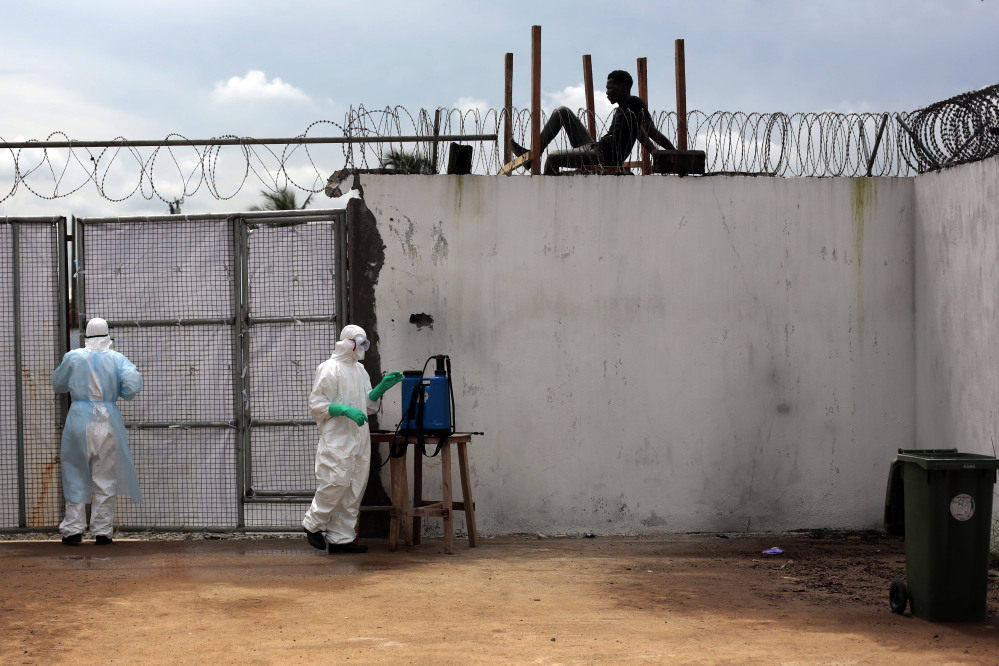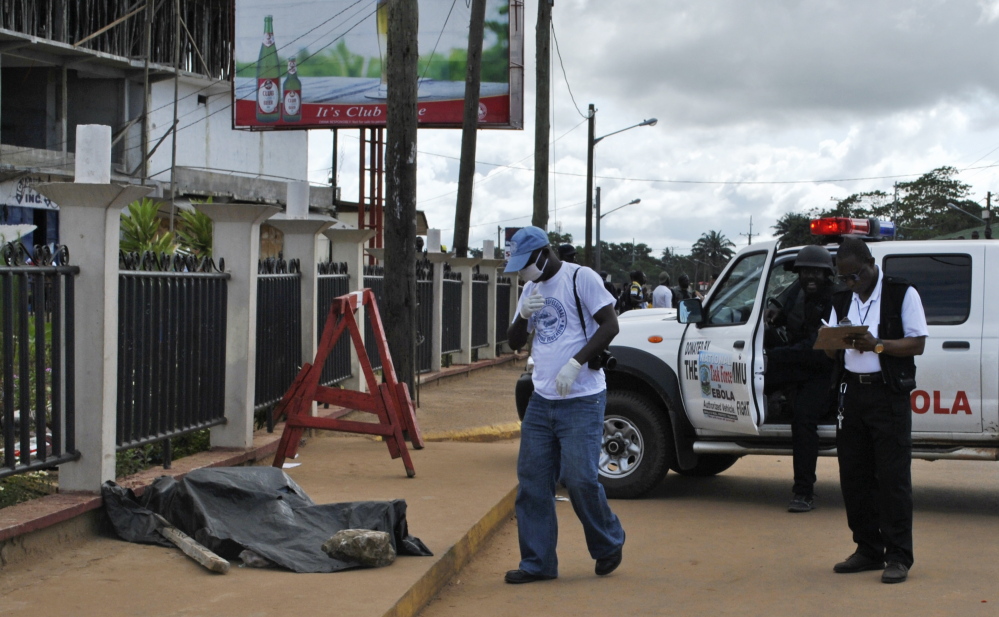MONROVIA, Liberia — Fourteen-year-old D.J. Mulbah set off at dawn with his mother and grandmother in desperate pursuit of a coveted bed at the Ebola clinic run by Doctors Without Borders in Liberia’s capital.
Too weak to stand, they bundled him up into a taxi with his backpack and a yellow plastic bucket for his vomit. Now he lay on the dirt beside the worried women awaiting word on how many new patients would enter the clinic today.
“He’s been sick for a week with a runny stomach,” says his distressed mother, wiping the sweat off the boy’s brow with her bare hands. “We tried calling an ambulance days ago but nobody ever came.”
Six months after West Africa’s first Ebola outbreak emerged, generous offers of aid are finally pouring in, but beds for the sick are filling up as fast as clinics can be built. The hundreds of millions of dollars will also be arriving too late for thousands here as the world’s worst-ever outbreak now has killed more than half its victims.
And even as countries try to marshal more resources to close the gap, those needs threaten to become much greater, and possibly even insurmountable. Ambulance sirens blare through standstill traffic here in Monrovia, though often there is nowhere to take the sick except to so-called “holding centers” where they await a bed at an Ebola treatment facility.
By 8 a.m. there are a dozen suspected Ebola patients crouching and sitting on the ground outside the metal padlocked gates of a Monrovia facility that can only hold 160 patients. Soon a triage nurse approaches, her voice muffled through a surgical mask covered by a plastic face shield. The news is good, and D.J. manages a faint smile: The clinic will take the boy. His fortune though comes only from the sorrow of others: Only seven of the 30 beds made available Saturday morning were vacated by survivors. The rest had died.
Dr. Joanne Liu, international president of Doctors Without Borders, urged world leaders this week to take “immediate action.”
“The promised surge has not yet delivered,” she said.
Statistics reviewed by The Associated Press and interviews with experts and those on the scene of one of the worst health disasters in modern history show how great the needs are and how little the world has done in response.
Copy the Story LinkSend questions/comments to the editors.




Success. Please wait for the page to reload. If the page does not reload within 5 seconds, please refresh the page.
Enter your email and password to access comments.
Hi, to comment on stories you must . This profile is in addition to your subscription and website login.
Already have a commenting profile? .
Invalid username/password.
Please check your email to confirm and complete your registration.
Only subscribers are eligible to post comments. Please subscribe or login first for digital access. Here’s why.
Use the form below to reset your password. When you've submitted your account email, we will send an email with a reset code.